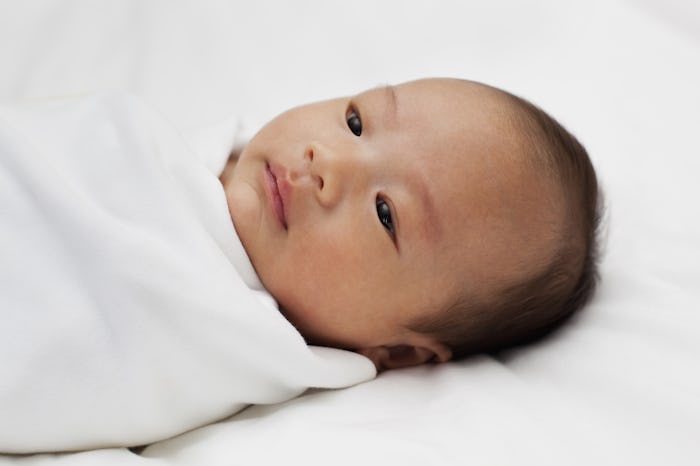Life

When Does Swaddling Become Unsafe? Sooner Than You Might Think
As a new parent, one of the first things you generally learn from nurses at the hospital is how to swaddle your baby. Done correctly, a blanket wrapped snugly around your newborn can help imitate the comfort of a mother's womb and help soothe your baby in as they transition into the big, bright world. But when does swaddling become unsafe, if it ever does?
According to Dr. Corinn Cross, a spokeswoman for the American Academy of Pediatrics (AAP) and pediatrician at Children’s Hospital Los Angeles, swaddling can be great for your newborn as long as you're doing it correctly. Similarly, Healthy Children noted that when done correctly, swaddling can be an effective technique to help calm infants and promote sleep. So when exactly does swaddling your newborn become dangerous? If it shows to be an effective calming technique, how could things go wrong?
In recent years, some studies have surfaced insinuating that swaddling your baby can lead to a higher risk of Sudden Infant Death Syndrome (SIDS). However, according to NPR, these studies connecting swaddling and SIDS were misleading. "This study was really looking at old data and trying to put together really apples and oranges," Harvey Karp, an assistant professor of pediatrics at the University of Southern California School of Medicine, told NPR. Additionally, the research didn't actually find increased risk between swaddling and SIDS when parents followed safe sleep guidelines, including placing an infant on their back to go to sleep.
Karp told NPR that he believed swaddling to be a wonderful way for parents to soothe their newborns into better sleep, and less crying. Without swaddling, Karp worried that because if shallow research, parents would abandon swaddling and increase crying and lack of sleep in their newborns. "While they really showed no clear evidence it was a risk factor to swaddle your baby safely, they created this worry that may discourage people from swaddling, which may then have unintended consequences that increase infant deaths," Karp told NPR.
Of course, when your baby hits a certain age, swaddling becomes less effective, and less safe. Dr. Rachel Moon, a pediatrician and chair of the task force that authored the AAP’s safe sleep recommendations said that once babies begin to roll over in their sleep, swaddling should be curbed. Because swaddling involves a blanket, if a baby were to roll over while wrapped in a blanket, it could cause blockage of their airways. “I would stop swaddling by age 2 months, before the baby intentionally starts to try to roll,” Moon told Healthy Children. “If babies are swaddled, they should be placed only on their back and monitored so they don’t accidentally roll over.” For more information on swaddling your newborn, be sure to read up on the AAP's guidelines for safe sleep to keep yourself in the know and educated on the best practices for you and your baby.